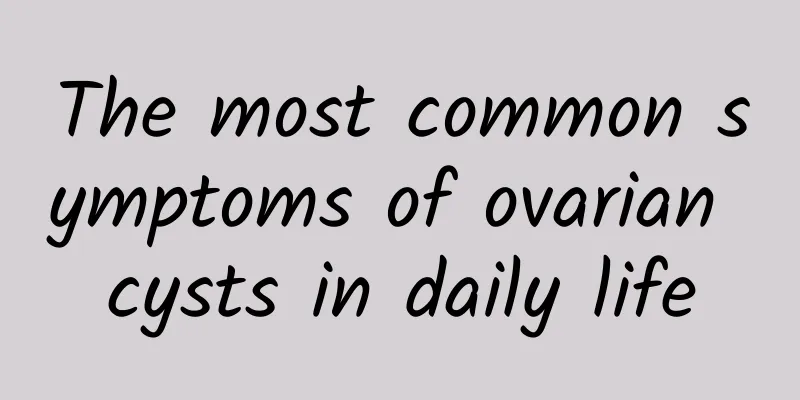Is it better to bleed or not bleed after abortion?

|
Bleeding after an abortion is not necessarily good or bad, but depends on individual differences and specific circumstances. A small amount of bleeding is usually normal, but no bleeding can also be a good sign of recovery. 1. Normal bleeding: After an abortion, most women will experience bleeding similar to menstruation. This bleeding usually lasts for about three days, and the amount of bleeding is similar to that of normal menstruation. This process is the body expelling the remaining endometrial tissue, which is a normal physiological reaction and there is no need to worry about it. 2. Abnormal bleeding: If the amount of bleeding after abortion is significantly more than the normal menstrual flow, or the bleeding lasts for more than seven days, this may indicate some problems. For example, incomplete abortion or poor uterine contraction. In this case, it is recommended to see a doctor in time for necessary examinations and treatment to avoid further health problems. 3. No bleeding: Some women may not bleed after abortion. This is usually because their uterus has stronger contractions and recovers faster. There is generally no need to worry about this situation. Instead, it may be a sign of good recovery. However, if there is no bleeding at all and accompanied by other discomfort symptoms, it is also recommended to consult 4. Pay attention to individual physical differences: Everyone's physical condition and recovery ability are different, and the reaction after abortion will also be different. Whether bleeding or not, it needs to be judged based on individual circumstances. Pay attention to your physical condition and maintain good living habits to help speed up recovery. 5. Healthy lifestyle: After an abortion, it is very important to maintain a good lifestyle. Get more rest, avoid overwork, and eat more nutritious foods, especially iron-rich foods, which will help your body recover. Keeping the vulva clean and avoiding infection is also very important. 6. Seek medical attention promptly: If you notice any abnormalities during recovery, such as persistent abdominal pain, fever, or abnormal secretions, you should seek medical attention immediately. These symptoms may indicate infection or other complications and require prompt treatment. Bleeding or not bleeding after an abortion does not necessarily mean good or bad, but needs to be judged based on the specific situation. Maintaining good living habits, paying attention to physical changes, and seeking medical treatment in time are the keys to ensuring health. I hope that every woman can get enough rest and care after an abortion and recover her health as soon as possible. |
<<: Bartholin's gland cyst in women
>>: Can a cervical cyst bleed?
Recommend
How to recover after abortion surgery?
Nowadays, more and more women are having abortion...
Pay attention to the prevention of vaginitis
Vaginitis brings a lot of unspeakable suffering t...
Can’t lose weight no matter how much you exercise? A famous Korean fitness coach teaches you 7 correct exercise rules to increase muscle and reduce fat
Exercising like crazy but not losing weight? Unab...
How to exercise with endometriosis
We all know that endometriosis is a disease that ...
Beware of the high-risk population for adnexitis
With the development of the times, more and more ...
Do you know how much harm multiple abortions can do to women?
As the number of patients undergoing abortion inc...
What are the symptoms of senile vaginitis?
What are the symptoms of senile vaginitis? 1. The...
Unable to control appetite, ruining weight loss efforts? Chinese medicine doctor Zhang Wenxin: To defeat the "little hunger demon", first help your body put out the fire
My appetite is too strong and I can’t control it ...
How to treat ovarian cysts surgically
How to treat ovarian cysts surgically? Ovarian cy...
Analysis of common precautions for acute cervicitis
The precautions for acute cervicitis are of great...
What are the dangers of hyperprolactinemia to women?
What harm does hyperprolactinemia do to women? Al...
Clinical manifestations of chronic cervicitis
Cervicitis can generally be divided into many typ...
Can ovarian cysts heal on their own? What are the symptoms?
Will an ovarian cyst heal on its own? What are th...
The causes of ovarian cysts are as follows
Ovarian cysts refer to the formation of cystic ma...
Three Chinese medicine treatments for ovulatory dysfunctional uterine bleeding
The main cause of ovulation bleeding is the ruptu...









